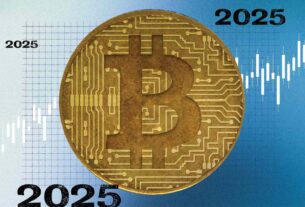- UAE’s Bitcoin Holdings Soar to $40 Billion As Bull Season Continues
- 2025 Bitcoin and cryptocurrency predictions
- Bitcoin soars to new all-time high over $106,000 on Donald Trump’s strategic reserve plans
- FTX To Begin Repaying Customers in Early 2025—What You Need To Know
- Why Is Bitcoin Surging? This Expert Forecasts $180K Bitcoin Price in 2025
Capital markets have seen a dramatic rise in the valuation of digital currencies over the last couple of months. The results of the US elections have amplified the surge as President-elect Donald Trump has consistently expressed pro-crypto policies and lax regulatory framework views. Bitcoin (BTC), for example, the world’s leading alternative cryptocurrency, rose around 150% in 2024.
Bạn đang xem: Central Banks And Sovereign Funds Grow Crypto Reserves
The new trend is forcing sovereign investors to reassess their asset allocation strategy and risk management.Many sovereign funds and central banks have upped their digital currencies exposure to capitalize on the growing market and its value. For example, Norway’s sovereign fund has become a cryptocurrency market leader by investing in crypto-related businesses.
Xem thêm : GB Rai invested over Rs184 million in cryptocurrency via Pachhai
The fund indirectly owned 2,446 BTC at the end of the first half of 2024, an increase of 938 BTC since the end of 2023. The US government currently holds over 200,000 BTC, valued at more than $20 billion, most of it seized from criminal investigations. The US is
one of the 13 nations holding bitcoin, according to a recent report by crypto exchange River. The UK and El Salvador, market pioneers in digital currencies, also hold significant bitcoin reserves. The UK has approximately 61,200 BTC, according to the report’s authors.
As more governments struggle with inflation and limited money supply, bitcoin holdings can hedge against inflation, similar to the traditional role of gold as a strategic asset in a portfolio. Also, bitcoin’s value is not correlated with other asset classes, such as bonds and equities, meaning it could serve as a tool for the bank’s risk management strategy. In addition, central banks often have financial arrangements with other central banks, which creates a counterparty risk in cases of political instability and non-performance. Bitcoin, like other cryptocurrencies, does not rely on central banks to increase its amount in circulation. This reality helps central banks that own digital currencies, especially bitcoin, reduce that third-party risk.
Nguồn: https://gapinsurance.click
Danh mục: News




